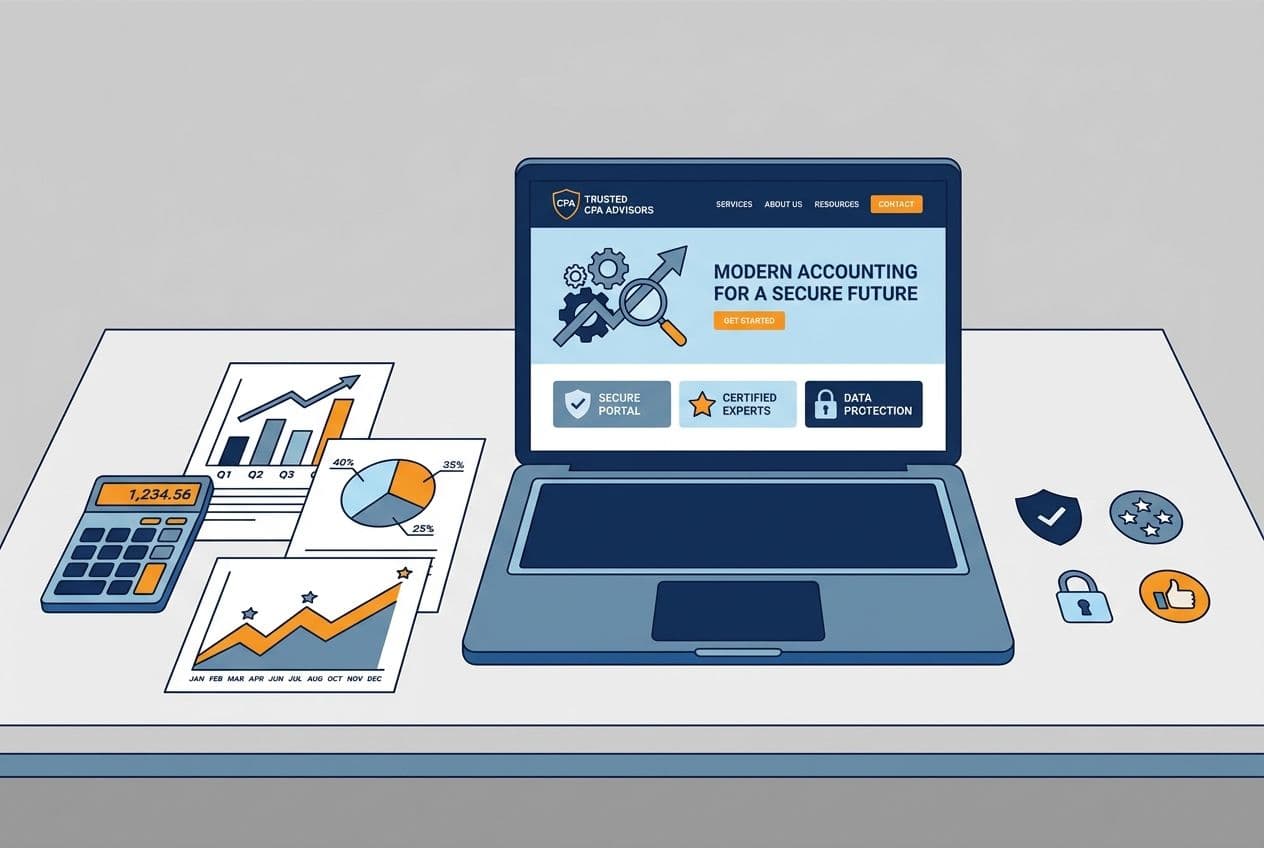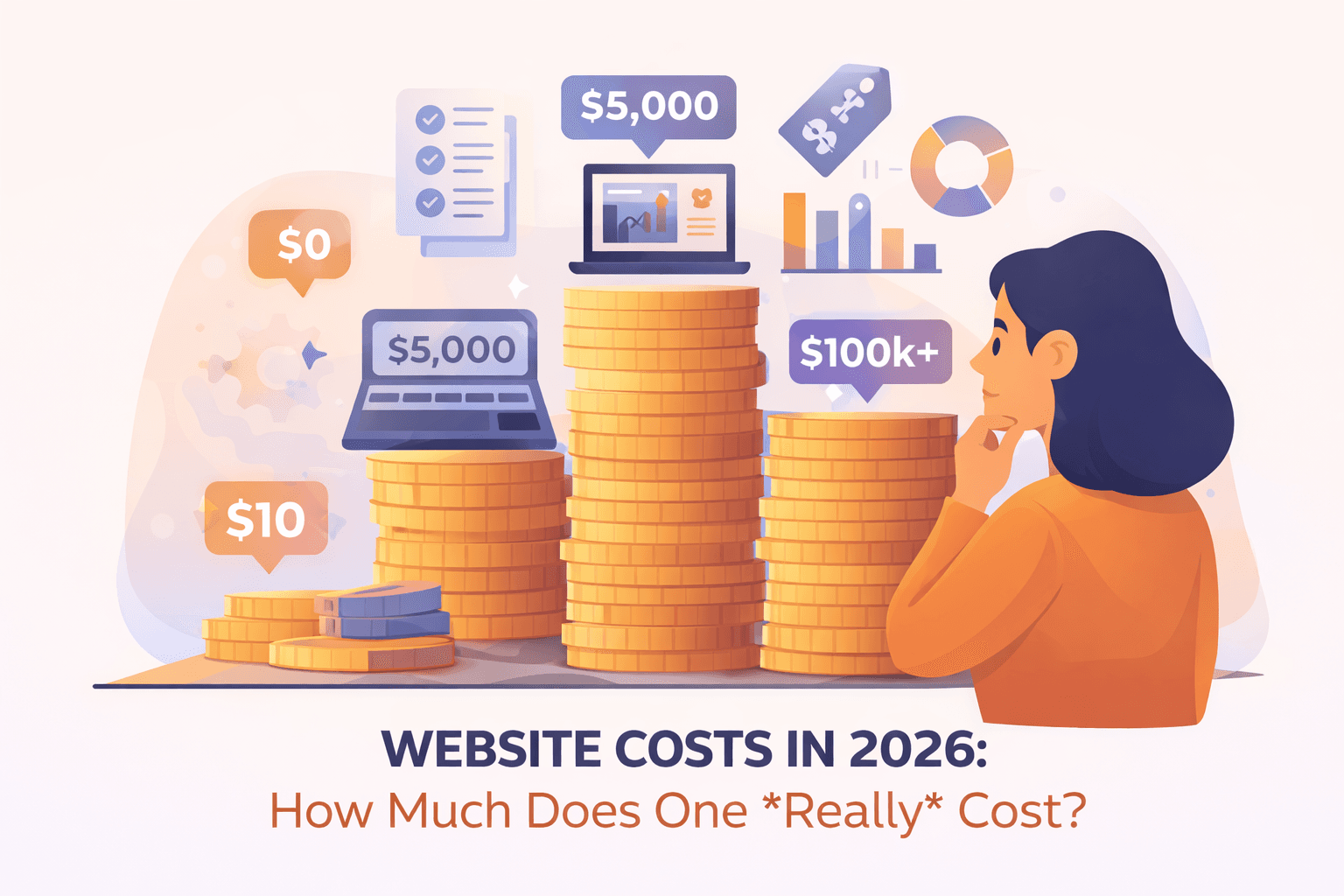Why Is Blockchain Becoming Essential for Web Development in Ohio?
If you’ve been paying even a little bit of attention, you’ve probably noticed blockchain showing up in more and more conversations, not just in crypto circles, but in industries that have nothing to do with Bitcoin or NFTs. And here’s the thing: it’s not a passing fad. Especially when it comes to web development in Ohio and other parts of the U.S., blockchain is slowly but steadily becoming the backbone of how developers think about websites, apps, and digital trust.
It may sound like a buzzword (and yes, it is often used too loosely), yet blockchain is addressing a range of issues that are quite real, security, transparency, and accountability being the most notable ones.
And with a business, a more appealing page design in Detroit that needs to employ a handyman or a business start in Columbus that needs to develop an online platform, you just cannot afford to ignore what is happening here.
The Shift: From Websites to Digital Ecosystems
At one point, the process of creating a site was as simple as putting up a few pages: a homepage, some service details, and a contact form. That was it. That was enough. But today? Not even close.
Individuals do not visit the websites; they communicate with them. They pay money, they write reviews, they sign contracts, and they send over sensitive information. A simple website design for handyman in Detroit can include booking systems, payment processing, customer feedback, and even automated quote generators.
Now imagine all that without proper security. One breach and your customer data is out there for the world to see. That’s where blockchain steps in.
Instead of storing all your info in one central place (which hackers love), blockchain distributes data across multiple “blocks” linked together. That means there’s no single weak spot. Even if someone tried tampering with it, the rest of the chain would expose the fraud.
In short, blockchain isn’t just about Bitcoin. It’s about making everyday websites and apps more secure and trustworthy.
Why Ohio?
You might be asking: Why the focus on web development in Ohio? Why not just talk about blockchain in general?
The fact is as follows: Ohio has been quietly creating a tech presence in the last ten years. Cities such as Columbus, Cleveland, and Cincinnati are becoming startup, logistics, healthcare tech, and fintech hubs; it is not Silicon Valley. Companies in this area are becoming aware that they can no longer compete with age-old sites that were designed in the year 2008.
Local businesses in Ohio are seeking blockchain-based solutions due to the fact that they desire:
- Customer trust (particularly in such sectors as health and finance)
- Improved security of payments (people are more conscious of the destination of their money on the web)
- Transparency in transactions (no more shady hidden terms or surprise charges)
- Decentralized apps (dApps) for niche industries
And honestly, it’s not just big corporations. Even small, service-based businesses like contractors, home repair services, or independent consultants are slowly realizing they can use blockchain-based verification systems to give themselves credibility.
Real-World Uses of Blockchain in Web Development
Forget the hype for a second. Let’s talk about what blockchain actually looks like when baked into websites or apps.
- **Secure Payments: **Let’s say you’re booking a handyman online. If that site integrates blockchain-based payments, both you and the handyman have proof of payment without needing a middleman like PayPal. Transactions are recorded and verifiable.
- **Smart Contracts: **This one’s huge. A smart contract basically means agreements (like service contracts) are automated and enforced without needing a lawyer. Example: You hire someone in Detroit for a home repair job, and payment is automatically released once the job status is marked as “done.” No chasing invoices.
- Data Protection: All personal data stored on the blockchain is encrypted and can hardly be changed. This is game-changing when it comes to businesses that handle sensitive data (medical records, financial details).
- **Decentralized Websites: **Instead of hosting a website on a single server that can go down or get hacked, blockchain allows distributed hosting. Think of it as making websites harder to kill.
- **Transparency in Reviews: **Fake reviews? Huge problem right now. Blockchain can verify that reviews are from real transactions, making them much harder to fake.
Why Businesses Should Pay Attention Now
Here’s where a lot of companies mess up. They think, “Oh, blockchain? That’s for crypto bros, not me.”
Wrong.
Blockchain is already creeping into everyday web functions. Decentralized solutions are being considered by even Google and Meta. The sooner a business ventures into the integration of blockchain, the less difficult it will be to implement when it becomes a norm.
Consider being the handyman service in Detroit that will allow your customers to book and pay safely with blockchain authentication, while your rivals continue to work with outdated forms and unsafe PayPal connections. Who will the customers trust more?
In Ohio, the same thing. A healthcare startup that integrates blockchain-based medical records is instantly more credible than one storing everything in a Google Drive folder.
Challenges (Let’s Be Real)
It’s not all sunshine. Blockchain isn’t “plug and play” just yet. Businesses face challenges like:
- Cost of implementation: Blockchain developers don’t come cheap.
- Complexity: Not every business needs the full suite of blockchain features.
- Regulations: Governments are still figuring out how to regulate blockchain-based services.
But here’s the kicker: ignoring blockchain now just means you’ll be playing catch-up later. And usually, catching up costs more.
Where SEO Fits into the Picture
Now, let’s tie this into something every business cares about: being found online.
Blockchain won’t replace SEO, but it will influence how SEO evolves. For example:
- Search engines may eventually prioritize decentralized, verified sites over shady, insecure ones.
- Blockchain could eliminate fake backlinks, meaning rankings will depend more on authentic credibility.
- Customer trust signals (like verified reviews) will carry more weight in local SEO.
So, whether you’re looking for website design for handyman in Detroit or scaling up a healthcare platform in Ohio, blockchain and SEO together will shape how your customers find and trust you online.
And if you want help navigating all that? That’s where agencies like Href Creative come in. Href Creative is already ahead of the curve in integrating new tech with real-world web strategies.
The Future Outlook
Fast forward five years: blockchain won’t be a novelty in web development. It’ll be expected. Just like mobile responsiveness used to be “extra” but now is mandatory, blockchain-backed security and transparency will be standard practice.
Ohio is positioning itself as a testing ground for this, and small to medium businesses that embrace it early will benefit the most. Whether you’re in home services, healthcare, retail, or tech, your website is more than a digital card; it’s your brand’s lifeline. Blockchain keeps that lifeline secure, credible, and adaptable.
Final Thoughts
Ohio may not scream “tech capital” at first glance, but it’s becoming a quiet powerhouse for web development. And blockchain? That’s the gear shift making everything more secure, transparent, and future-proof.
A combination of good design, SEO, and blockchain-driven security will make you stand out, whether you are a giant start-up, a healthcare organization, or a local handyman who needs to have a decent web presence.
When you are willing to step into the next stage of web development, Href Creative can help you out; they understand how to combine design, development, SEO, and progressive technology without making your head spin with jargon.
Because in the end, it’s simple: the future of web development isn’t optional. It’s already here — contact us.


